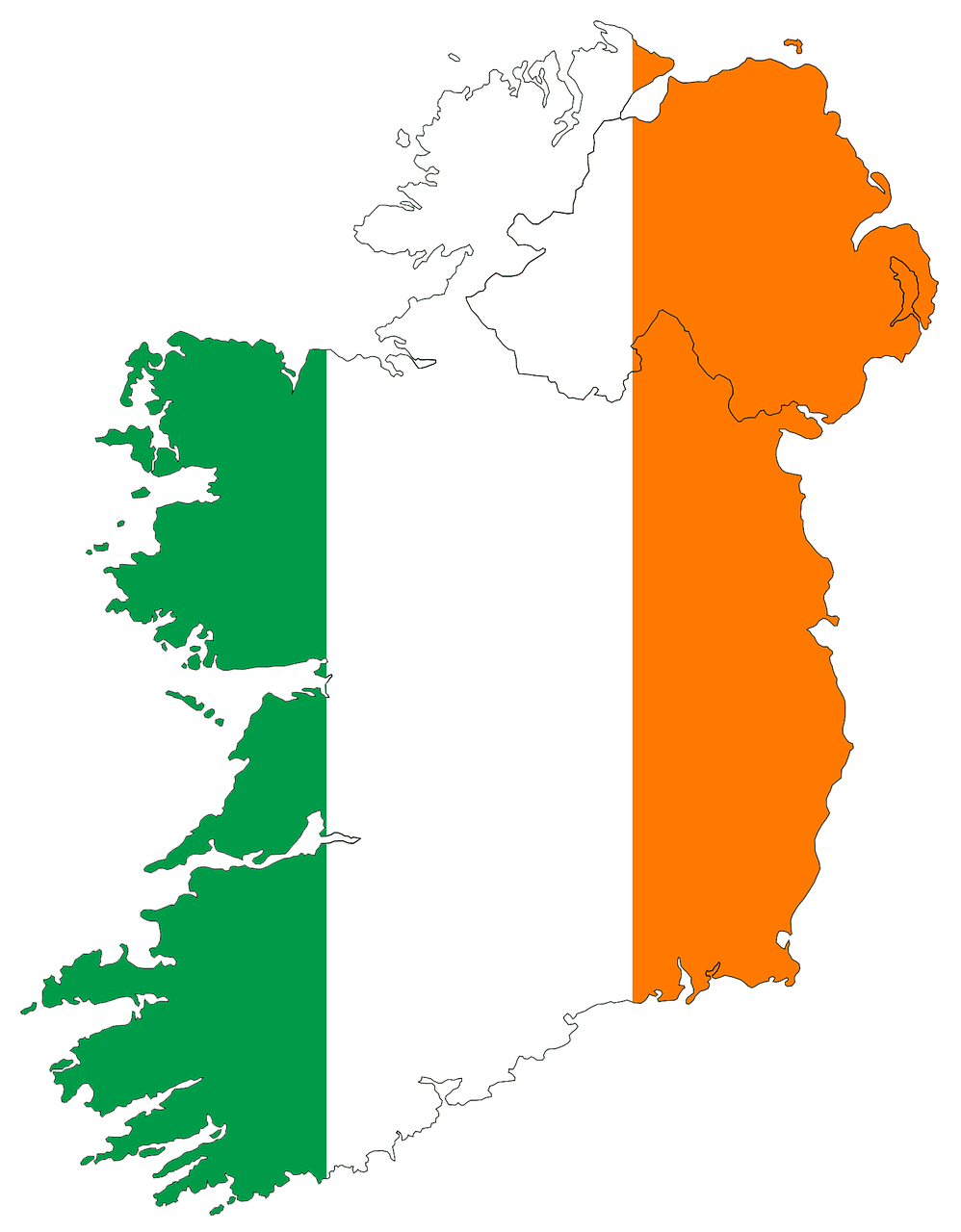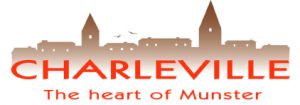Charleville Heritage Society members will unveil the remaining two plaques honouring Rev. Fr/ Thomas Croke, the town’s former parish priest from 1827 to 1873, and John Anster, the internationally renowned poet and translator (1793-1867), who was born at Main Street Charleville.
This follows the unveiling of the plaque dedicated to the memory of Eliza Lynch at Chapel Street, Charleville, who is the national heroine of Paraguay in South America last November. This was unveiled by the Paraguayan Ambassador to France H.E Cynthia Artiga Le Croix before a two hundred members of the Paraguayan community domiciled in Ireland.
The plaque in memory of Fr. Thomas Croke will be erected on the wall of former Convent Chapel, which is now the Mercy Order’s Provincial Heritage Centre, while the plaque honouring John Anster will be erected on the wall of the Imperial House at Main Street. John Anster was born in a building on this site into a family of brewers in 1793.
REV. FR. THOMAS W. CROKE (1782-1873)
Thomas Croke was born in Tralee in 1782. He was ordained priest for the Diocese of Cloyne in Maynooth in 1811 and served as curate in Fermoy, and as administrator in Cobh, prior to being appointed Parish Priest of Charleville in 1827 by Bishop Coppinger of Cloyne, on the death of Rev. Fr. James Barry who died in May 1827.
In an account in the Cork Examiner of Monday 24th March 1873, it states that, “Fr. Croke was one of the surviving links between the times of persecution and the comparative liberty which our church at present enjoys, and his memory was stored with anecdotes of those disastrous days when a priest of this diocese – Rev. Fr. Peter O’Neill – was inhumanely flogged, and afterwards transported because he would not reveal the secrets of the confessional.”
Fr. Croke was the grand nephew of Most Rev. Dr. Thomas McKenna, who was Bishop of Cloyne from 1769 to 1791. Fr. Croke conferred inestimable benefits on the diocese by the establishment of Burses in the Irish College in Paris for the education of its priests. To these burses Fr. Thomas Croke enjoyed for many years the right of nomination, and on them were educated some of the most distinguished priests of the diocese of Cloyne.
Included in these were members of his own family, Most Rev. Dr. Thomas William Croke, Bishop of Auckland New Zealand, and later the Archbishop of Cashel and the first patron of the Gaelic Athletic Association (GAA), and Very Rev. James Croke, Vicar-General of San Francisco, U.S.A. A third nephew Rev. Fr. William Croke died in the Great Famine in 1849 of famine fever, while a curate in Charleville with his uncle. He lies at rest in Holy Cross Cemetery Charleville.
Rev. Fr. Thomas W. Croke was Parish Priest of Charleville for forty-six years and was one of the most influential parish priests in the parish from 1827 to 1873. Just a year into his ministry there was an episcopal visit by the then Bishop of Cloyne, Rev. Michael Collins to Charleville. His report of the visit stated that Fr. Croke had greatly improved the interior of the chapel, which was built in 1812, and of the chapel house. He had painted the chapel, erected a tabernacle and a pulpit and decorated the altar with great taste and simple elegance. He had also recovered land which had irregularly attached to the adjoining parish of Ballyhea. He instructs his flock every Sunday.
His zeal for the Christian education of the poor led to him being instrumental in attracting the Mercy Sisters to Charleville in 1836 to educate the young girls and women of the town and area. Thirty years later in 1866 he also brought the Irish Christian Brothers to Charleville to emulate the achievements of the Mercy Sisters with the girls, The Christian Brothers were asked to do the same for the boys and young men of the town and area.
In politics he was thoroughly patriotic and consistent in the early of his religious career, and he was part of the struggle for Emancipation under Daniel O’Connell. He was ever zealous in the discharge of the sacred duties of his ministry and tenderly solicitous for the poor of his flock and was generous in his in his contributions towards the relief of their wants. His ministry in Charleville covered the years of the Great Famine from 1845 to 1852.
Fr Croke’s political feelings were demonstrated when in November 1868, he fell foul of the Resident Magistrate Thomas Sanders J.P., over a Mass to commemorate the executions of the Manchester Martyrs, Allen, Larkin, and O’Brien, in Charleville Chapel. Mr. Sanders objected to this and stated in his letter to Fr. Croke, that, “Such a ceremony could not be celebrated without permission (of the authorities), and should not be celebrated by you, or with your sanction. I do not intend to question the propriety of it considered merely as a religious ceremony to take place, within and be confined to the walls of the chapel. The circulation of the notice, however, gives grounds for apprehension that if it is to take place, it will be made the occasion of a meeting, which will most probably assume an illegal charade. It will become necessary for me to take proper steps for the preservation of peace. I therefore request you will be kind enough to let me know without delay, whether such a ceremony is to take place or not. I want your answer by 7am tomorrow morning.
Yours Truly, Thomas Sanders, J.P.”
In his reply to the magistrate, Fr. Croke stated: “Had my state of health permitted it I would not only have sanctioned the Mass to be said in my church for the souls of Allen, Larkin and O’Brien, but I would have celebrated it for them myself, or for the souls of all who die in communion with the Catholic Church in defiance of you, or any other official paid or unpaid functionaries or authority in the land. This is my answer. Dare question it.”
Your humble servant,
Thomas Croke, Pastor.”
POET/TRANSLATOR
JOHN ANSTER
(1793-1867)
Internationally famous Charleville poet, John Anster was born in the town 1793. Like Sean Clarach Mac Domhnaill, some two centuries previously, John Anster attended the Earl of Cork’s Endowed School, where he received a classical education in Latin and Greek and became one of the most esteemed poets of the nineteenth century, mainly for his translation from German of Goethe’s ‘Faust.’ To this day, despite translations of ‘Faust’ by other people, Ansters’ translation is regarded as the most definitive of Goethe’s original work.
Along with his translation of ‘Faust’ he wrote several books of poetry and contributed articles to many other publications. He was appointed Registrar of the High Court of the Admiralty in Ireland. He died aged 73 years in 1867 and is buried in Dromcondra, Dublin.
A survey of 1841 shows that Anster’s parents owned property in Charleville’s Main Street. John himself graduated from Trinity College Dublin with an Arts Degree in 1816 and in 1824 was called to the Irish Bar and on being conferred with a Doctor of Law went on the Munster Circuit, a year later.
He married Elizabeth Bennett of Castlecreagh. Co. Limerick in 1832 and the couple had two sons and three daughters. He converted from Catholicism to the Church of Ireland. Along with his translation of ‘Faust’ he wrote several books of poetry and contributed articles to many other publications. He was appointed Registrar of the High Court of the Admiralty in Ireland. He died aged 73 years in 1867 and is buried in Dromcondra, Dublin.






